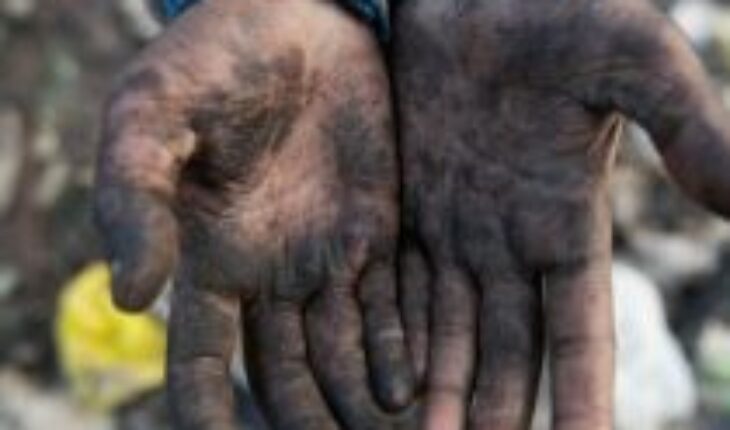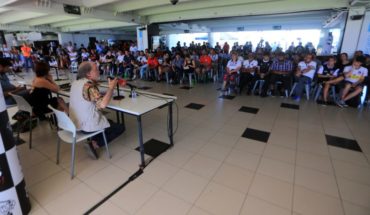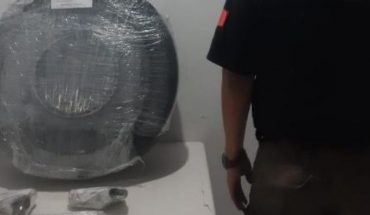Of the 25 million people currently in forced labour, 61 per cent are women and children, according to estimates by the World Labour Organization (ILO). “There are millions of people without the right to choose. We don’t want to see products made with forced labour in our common market,” Bernd Lange, chairman of the European Parliament’s Committee on International Trade, announced this week. Whether it is agricultural products, textiles or rare earths, the European Parliament issued a resolution this week asking the EU executive to present, no later than September of this year, an instrument that prevents the entry into the large European market of any product made in conditions of slavery.
Just a matter of definition?
Examples in Latin America of products destined for the European supply chain generated with slave labor are not lacking. On the other hand, there is a clear definition of “forced labour” to replace that contained in the 1930 ILO Convention: “Any work or service required of an individual under the threat of any penalty and for which that individual does not volunteer himself”.
“For cocoa and coffee work, this definition is a trap,” Fernando Morales de La Cruz, an activist with the #CeroTrabajoInfantil initiative, told DW. “Because if families approve of children going, it’s not forced. If they are offered three meals a day and people come voluntarily, it is not forced labour. It’s slavery,” says Morales de La Cruz. Therefore, “we need evidence-based criteria to define forced labor, because companies have their own way of seeing things,” says Bernd Lange, promoter of the European Parliament resolution.
Cartoon by Filochofo for the International Day Against Child Labour, 12 June.
Indeed, although ILO figures speak of 25 million people in conditions of what is called “modern slavery”, according to UNICEF data, the 160 million children who worked in 2020, could amount to almost 169 million. Agriculture is where child labour is most recruited (70 per cent globally), followed by the service sector (19.7 per cent) and industry (10.3 per cent). Although in Central America and the Caribbean the trend was downward between 2008 and 2020, the pandemic has exacerbated the situation. 40% of this labour, direct or indirect, is used in goods and services for export.
Claim, seizure, compensation
“At the heart of this resolution is the demand for a binding instrument that allows an affected community in El Salvador to file a complaint that reaches Europe and can access reparation,” Santiago Fischer, advocacy coordinator in Belgium of the organization We Social Movements, told DW. A standardized procedure would make it easier for non-governmental organizations or the interested parties themselves to initiate the complaint.
After that, the resolution provides for the apprehension of these “suspicious” products at the EU’s borders and their seizure. Their entry into the European market would be permitted only after it has been proved that the suspicion was unfounded or that the company has repaired or changed the production conditions.
Cartoon by John Curtis for #Cartoon4Change’s #CeroTrabajoInfantil campaign.
The road is not easy, as supply chains are not transparent. In addition, “neither the Netherlands, nor Belgium, nor Germany have legislation to be able to stop these products in their large ports and penalize those who profit from forced labor,” says Morales de La Cruz, seeing this legislative initiative as a step forward, but rather small.
A swallow does not make summer
“Forced labour and child labour are important areas of struggle, as they are serious violations of human rights, but there are also violations of trade union and environmental rights. And although the proposal is good, it should not be an additional instrument but should be included in a “due diligence” directive for European companies, “says Fischer, with the aim of advancing the binding international treaty on business and human rights, which is negotiated at the UN. The steps being taken in this direction in France, Belgium, Germany and the Netherlands would, in his view, bode well.
Finally, although this penalty of processed products coWhether slave labour would concern only goods and services destined for export (40 per cent in Latin America and the Caribbean), Fischer is confident that international pressure and the weight of the EU market will help drive changes in domestic production. “Of course,” warns Fischer, “once the legal instrument is created, we must pay close attention to its implementation.”
Follow us on





